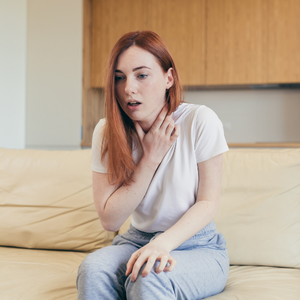 Panic is a feeling of overwhelming fear that can occur suddenly and without warning. It is a natural human response to a perceived threat, but when it becomes excessive and interferes with daily life, it can be diagnosed as a panic disorder.
Panic is a feeling of overwhelming fear that can occur suddenly and without warning. It is a natural human response to a perceived threat, but when it becomes excessive and interferes with daily life, it can be diagnosed as a panic disorder.
Symptoms of panic attacks include:
- Rapid heartbeat
- Sweating
- Trembling or shaking
- Shortness of breath
- Choking sensation
- Chest pain
- Nausea or stomach discomfort
- Dizziness or unsteadiness
- Fear of losing control or "going crazy"
- Fear of dying
It is important to understand that panic attacks are not dangerous and do not cause physical harm. However, they can be very distressing and have a significant impact on quality of life. There are various treatments available for panic disorder, including therapy, medication, and self-help techniques.
Cognitive-behavioural therapy (CBT) is a common form of therapy that helps individuals understand and change negative thought patterns and behaviours. Antidepressant medications, such as selective serotonin reuptake inhibitors (SSRIs), can also be effective in reducing panic symptoms.
 Self-help techniques for coping with panic include deep breathing exercises, progressive muscle relaxation, and mindfulness meditation. Exercise, healthy eating, and getting enough sleep can also improve symptoms of panic and anxiety.
Self-help techniques for coping with panic include deep breathing exercises, progressive muscle relaxation, and mindfulness meditation. Exercise, healthy eating, and getting enough sleep can also improve symptoms of panic and anxiety.
It is important to remember that recovery from panic disorder is possible. With the right treatment and support, individuals can learn to manage their symptoms and live fulfilling lives. If you or a loved one is experiencing panic attacks, it is important to seek professional help. A mental health professional can work with you to develop a personalised treatment plan and provide the support and guidance needed to overcome this challenge.
To find out more about our therapy options and to receive a recommendation on which therapy would be most appropriate for you, please click on the button below to book a free consultation.
